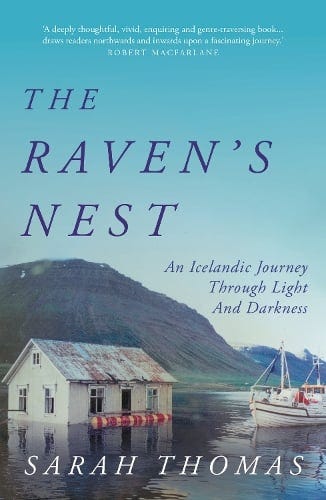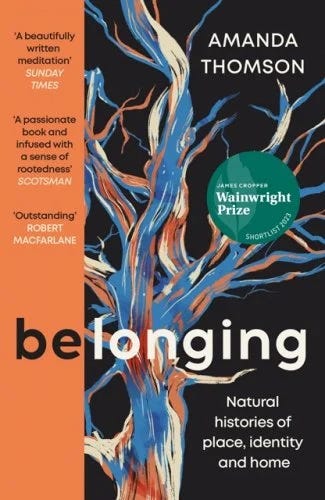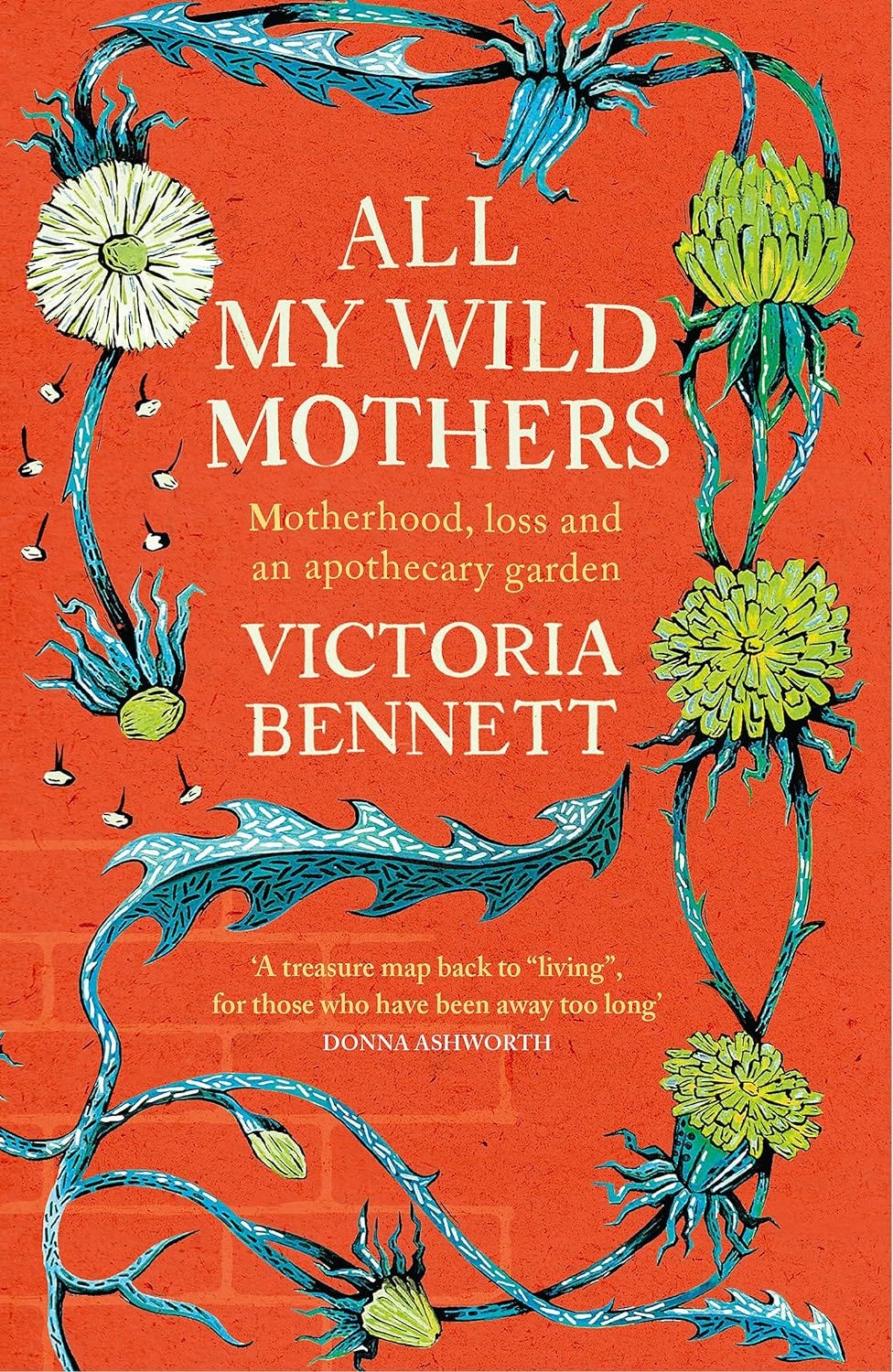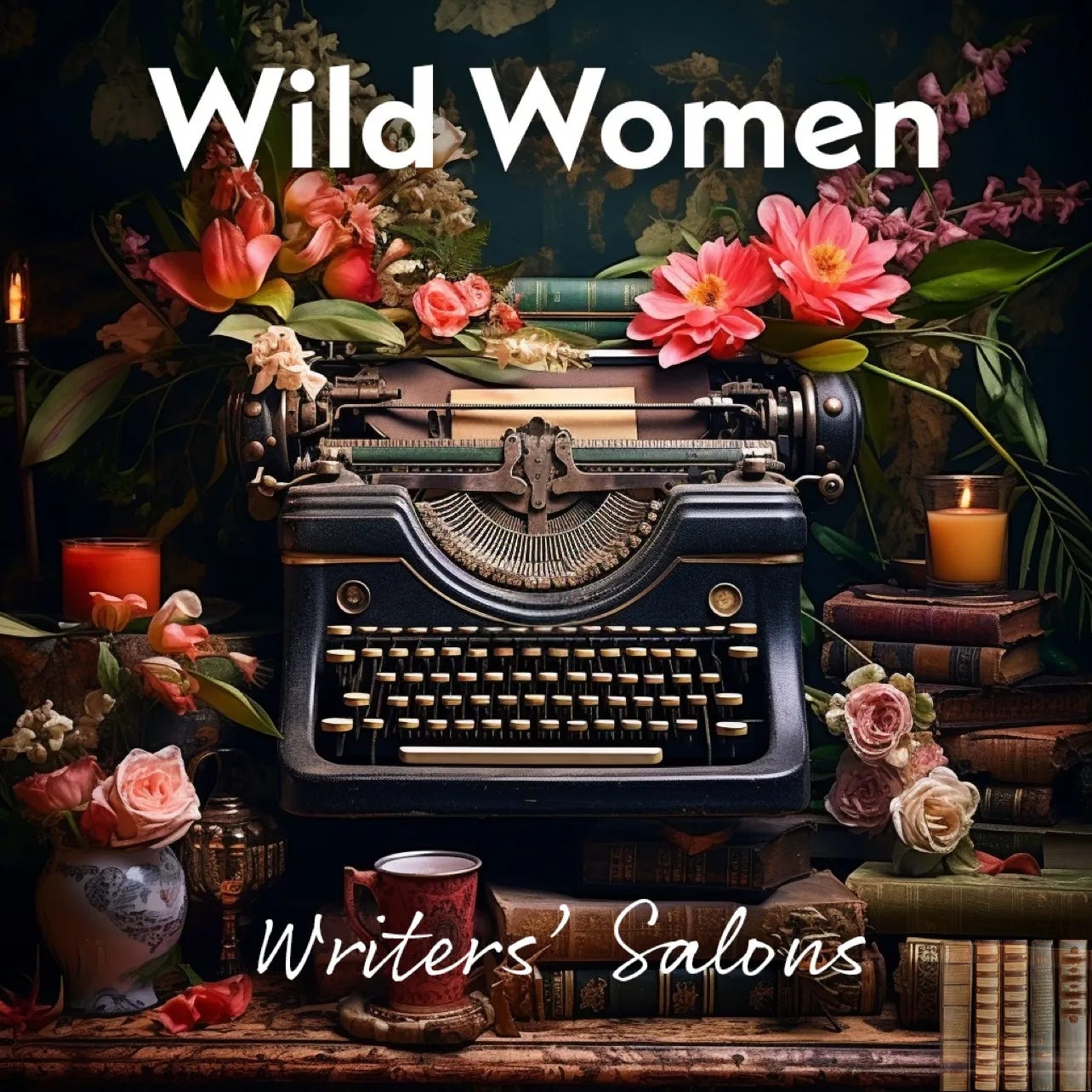“To stand at the edge of the sea, to sense the ebb and flow of the tides, to feel the breath of a mist moving over a great salt marsh, to watch the flight of shore birds that have swept up and down the surf lines of the continents for untold thousands of years, to see the running of the old eels and the young shad to the sea, is to have knowledge of things that are as nearly eternal as any earthly life can be.”
― Rachel Carson - Under the Sea Wind
March ended with another wonderful Wild Women Writers’ Salon, with guest authors Easkey Britton, Hannah Stowe, and Lisa Woollett. Together, we explored what it means to be connected to the sea — whether that is in it, on it, or at the liminal space of the shore. A literal deep dive into how water shapes us and our creativity. It was an amazing evening, with so much to think about and inspire.
‘…a fabulous, enlightening and inspirational talk…’
If you want to follow up with some further resources, here is a short film from Easkey on Connecting with the Ocean for Wellbeing.
Remember - if you missed the salon, you can upgrade to a paid subscription and access this and all other recordings as part of your package.
Keep reading to find out what’s coming in Salon 6 - April 25th at 7 pm BST
Coming April 25th
Wild Women Writers’ Salon 6
Entwined Narratives
Identity, belonging, and the interplay of writing and art in creative practice
with guests Sarah Thomas (The Raven’s Nest), Samantha Clark (The Clearing), Amanda Thomson (Belonging), and Joanna Wolfarth (Milk)
Join us for a deep dive into the creative interplay between writing and art in creative practice. From the landscapes of Iceland to the dynamic waters of Orkney, the notions of home and belonging to the cultural narratives of motherhood, our guests bring their unique perspectives on how the natural world, personal history, and art shape (and reshape) our understanding of self and society, especially at a time of environmental and personal upheaval.
Introducing our Salon Guests
Dr. Sarah Thomas
Sarah Thomas is a writer and documentary filmmaker with a PhD in Interdisciplinary Studies. She is committed to work that explores our entanglements with the living world. Her films have been screened internationally. She has been a regular contributor to Dark Mountain journal, and her writing has also appeared in the Guardian and the anthology Women On Nature edited by Katharine Norbury. In 2020, she was nominated for the Arts Foundation Environmental Writing Award. She was longlisted for the inaugural Nan Shepherd Prize and shortlisted for the 2021 Fitzcarraldo Essay Prize.
Her debut memoir, The Raven’s Nest, is a profoundly moving meditation on place, identity and how we might live in an era of environmental disruption — a personal account of the breakdown of her marriage, it finds inspiration in the landscape of Iceland, the experience of living in a different environment and within a language, and in the artistry of a raven’s nest: a home which persists through breaking and reweaving – over and over.
“…A deeply thoughtful, vivid, enquiring, genre-traversing book, closely attentive to the people and the landscapes with which it dwells…” – ROBERT MACFARLANE
Dr. Samantha Clark
Samantha Clark is a visual artist, writer and mentor based in the Orkney islands, and working internationally. Shaped by Orkney’s dynamic natural environment of wind, sky and particularly water, her recent work invites us to notice how water permeates everything as we inhabit a liquid reality that interpenetrates our own bodies and minds.
Originally trained as a tapestry weaver, Sam’s practice has evolved over thirty years through writing, drawing, installation, video and permanent works in the public realm, with painting as her primary current focus. She has an MA in Environmental Philosophy (UCLAN, 2011) and a PhD in Creative Writing (St Andrew’s University, 2017). In 2023, she received the inaugural RSA MacRobert Trust Art Award for Painting.
Her debut memoir, The Clearing: A Memoir of Art, Family and Mental Health, concerns the ‘spaces between’ and what may be learned in them. As she clears the family home after the death of both her parents, the memories held there prompt reflections on her family’s flawed strategies for coping with her mother’s mental illness, the isolation of her father in caring for her, and how these relationships shifted as her parents aged. Threaded through the narrative are insights drawn from classical and scientific ways of understanding empty space, like the ‘ether’ and dark matter, and from the calm, contemplative space that art offers us.
“Perceptive…a reflection on art, life and the beauty to be found in things we can never fully understand.” — TIMES LITERARY SUPPLEMENT
Dr. Amanda Thomson
Amanda Thomson is a visual artist, writer and lecturer at the Glasgow School of Art. Originally trained as a printmaker, her interdisciplinary work is often about notions of home, movements, migrations, landscapes, the natural world, and how places come to be made. She has exhibited nationally and internationally, and her writing has appeared in The Willowherb Review, Gutter and the anthologies Antlers of Water, Writing on the Nature and Environment of Scotland, edited by Kathleen Jamie, and The Wild Isles: An Anthology of the Best British and Irish nature writing edited by Patrick Barkham. In 2013, she completed her doctorate in Interdisciplinary Arts Practice. Her practice-led thesis considered the ways in which we came to know the place and was rooted in Abernethy Forest in Strathspey and the forests of Morayshire, particularly Culbin.
Reflecting on family, identity, and nature, ‘Belonging: Natural Histories of Place, Identity and Home’ is a personal memoir about what it means to have and make a home. It is also a love letter to nature, especially the northern landscapes of Scotland and the Scots pinewoods of Abernethy. A book about how we are held in thrall to elements of our past, it speaks to the importance of attention and reflection and will encourage us all to look, observe, and ask questions of ourselves. Beautifully written and featuring Amanda Thomson’s artwork and photography throughout, it explores how place, language and family shape us and make us who we are.
‘…An evocative, intimate journey through the ways we find home—in family, place, history, and language…' — JESSICA J. LEE
Dr Joanna Wolfarth
Joanna Wolfarth is a specialist in Southeast Asian cultural history, with a specific focus on Cambodia. She holds a Ph.D. from the University of Leeds in History of Art and is an art historian, lecturer, and writer. She currently teaches art history at The Open University and was previously a Visiting Lecturer in Southeast Asian Art History at SOAS, University of London.
Her debut memoir, Milk: An Intimate History of Breastfeeding, uses the arc of her own experience to take us on an intimate journey of discovery beyond mother and baby, asking how the world views caregivers, their bodies, their labour and their communal bonds. By bringing together art, social histories, philosophy, folk wisdom and contemporary interviews with women from across the world, Milk reveals how infant feeding has been represented and repressed, celebrated and censured.
‘…a diverse affair, taking in everything from ancient icons of motherhood and Renaissance views of the sanctity of milk, to Victorian medical manuals and trips to the 21st-century maternity ward...' — BBC HISTORY REVEALED
Introducing the salon host…
Victoria Bennett is an award-winning disabled poet, author, carer and founder of Wild Women Press. Her debut memoir, All My Wild Mothers: motherhood, loss and an apothecary garden, was long-listed for the Nan Shepherd Prize and won the New Writing North Northern Debut Award.
All My Wild Mothers: motherhood, loss and an apothecary garden
At seven months pregnant, Victoria Bennett learns her sister has died in a canoeing accident. At that moment, her life is changed.
Five years later, and struggling with the demands of motherhood, grief and full-time care, Victoria and her family move to a new social housing estate in rural Cumbria. Here, in the rubble of a former industrial site, she and her young son begin to grow a wild apothecary garden: daisy, for resilience; dandelion, for strength against adversity; sow thistle, to lift melancholy; and borage, to bring hope in dark and difficult times.
Stone by stone, seed by seed, they discover that sometimes life grows, not in spite of what is broken, but because of it.
All My Wild Mothers is an intimate memoir of motherhood, a handbook on survival and a testimony to radical hope.
‘A beautifully written and wisely laid out memoir . . . a treasure map back to 'living', for those who have been away too long…’ — DONNA ASHWORTH, author of WILD HOPE
What are the Wild Women Writers’ Salons?
The Wild Women Writers’ Salons are on the last Thursday of every month (except December) and include both day and evening events. The programme, which focuses on memoir and creative nonfiction, runs until November 2024.
With a treasure chest of excellent writers from across the globe, these are different from your regular Zoom sessions or author events. Together, we're creating a welcoming and inspiring space to gather and engage in meaningful conversation and reflection, where writers can share and explore their inspirations and writing journeys.
Each salon will feature three (and sometimes four!) fantastic guest writers. Here’s a sneak peek of what you can expect:
Dive deep into the world of words.
Hear authors share their works.
Get a behind-the-scenes look at the creative process.
Real talk about publishing highs and lows.
Engage in some heart-to-heart during the Q&A session.
Remember, ticket sales and paid subscriptions help value and pay the amazing people making these salons possible—from behind the scenes to the fabulous authors!
Be part of the growing Wild Women Writers’ community
Why Upgrade to Paid?
The salons are completely unfunded. All paid subscriptions support the work being done behind the scenes to make the Wild Women Writers’ Salons and the newsletter happen. In exchange for your support, you receive access to:
access to recordings of all the salons;
additional interviews with our guest authors on their writing and inspirations;
further reading/resources and book suggestions from our guest authors;
writing prompts from our guest authors;
you can submit your writing questions to our guest Author Agony Aunt. One will be picked to be answered in each issue;
listed opportunities and courses;
the chance to be part of a nurturing community of creative practice!
Please consider upgrading to a paid subscription today.
Thank you for your support.
Keep reading with a 7-day free trial
Subscribe to Wild Women Writers' Salons to keep reading this post and get 7 days of free access to the full post archives.









